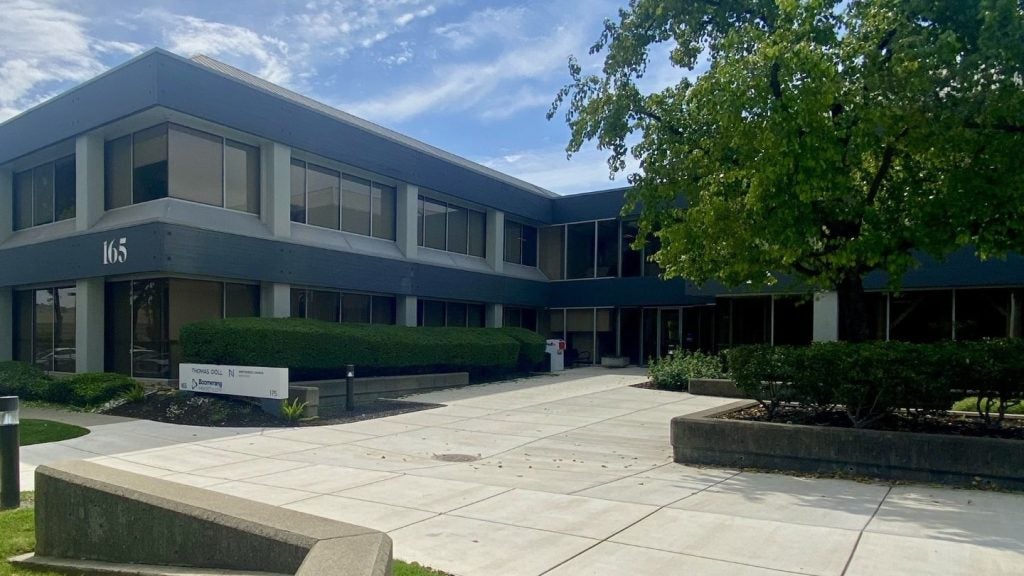
In an era of rapid technological advancement, businesses are compelled to adapt to survive and thrive in an increasingly digital world, getting on board with the coming revolution in the business landscape, a fact noted by companies around the world, such as Oracle. The transformative power of technology has become a driving force for change, enabling organisations to streamline processes, enhance efficiency, and deliver unparalleled value to their customers. The International Accounting Bulletin explores these ideas as shared by London Stock Exchange Group CFO, Anna Manz, at the 2023 CloudWorld Tour.
As stated in her opening remarks, Manz established that over the past 18 months, businesses have been undergoing a process of ‘going slow to go fast’. To Manz, it is vital to highlight the significance of having a clear understanding of how to run a business before embarking on a transformation journey. Without this understanding, organisations risk veering off course and jeopardising their future. To mitigate these risks, companies have dedicated considerable time and effort to comprehending their customers’ needs. By delving deep into data and insights that underpin business operations, organisations can gain valuable knowledge about their customers and align their strategies accordingly.
One crucial aspect of technological transformation highlighted in the speech is the need to redefine the concept of products. Manz reveals that multiple definitions of what constitutes a product within an organisation can lead to confusion and hinder operations. Aligning the understanding of products across the organisation is essential for cohesive decision-making and a unified commercial model. This process requires organisations to critically examine their offerings and evaluate how they align with market trends and customer expectations. By redefining products in a holistic manner, businesses can ensure their commercial models and sales strategies remain relevant and effective.
The era of technological transformation
Technological transformation goes beyond mere system changes; it signifies a fundamental shift in how businesses operate – a process made simpler and more accessible thanks to Oracle’s services. As Manz emphasises, organisations must not only consider their current state but also anticipate where their industry is evolving. Beyond data analytics, software-as-a-service (SaaS) products, and workflow automation, businesses need to construct forward-thinking strategies to meet future customer needs. By embracing emerging technologies, staying ahead of the curve, and fostering an agile mindset, organisations can position themselves as industry leaders and continuously deliver innovative solutions that add value.
The transformative journey outlined by Manz encompasses more than just operational efficiency; it holds the key to revenue acceleration. By deepening their understanding of products, customers, and key performance indicators (KPIs), organisations can unlock revenue growth and drive cost savings. The work done to comprehend products, customer needs, and the value delivered has paved the way for revenue acceleration. Through behavioural changes and aligning revenue and cost considerations, businesses can make informed decisions that optimise customer profitability and product profitability. This not only enhances financial performance but also fosters sustainable growth.
Another significant benefit of technological transformation highlighted by Manz is the streamlining of processes to enhance operational efficiency. In today’s fast-paced business environment, organisations must eliminate inefficiencies and redundant tasks. By consolidating multiple systems and processes into a seamless, integrated solution, businesses can simplify their operations and deliver a more cohesive experience to their customers. The removal of low-value work not only improves the work environment but also enhances customer satisfaction. By eliminating complexity and offering a streamlined interface, businesses can foster strong customer relationships and build long-term loyalty.
Automation plays a pivotal role in the transformative journey of businesses. As mentioned in the speech, automating data analysis and decision-making processes significantly impacts operational efficiency. By leveraging technologies such as artificial intelligence and machine learning, organisations can harness the power of data to drive insights and make informed business decisions that lead to improved outcomes. Automation reduces manual errors, accelerates processes, and frees up valuable human resources to focus on higher-value tasks. However, implementing automation comes with its challenges. Organisations need to ensure a smooth transition by addressing potential resistance from employees who fear job displacement. It requires a careful balance between automation and human intervention to maintain a personalised touch and exceptional customer experience.
Technological transformation necessitates the development of a data-driven culture within organisations. As mentioned by Manz, understanding and harnessing data is essential for making informed business decisions. Data provides valuable insights into customer behaviour, market trends, and operational performance. By leveraging advanced analytics tools, businesses can extract meaningful information from vast amounts of data, enabling them to identify patterns, predict customer needs, and drive strategic initiatives. Embracing a data-driven culture empowers organisations to stay ahead of the competition, innovate, and deliver personalised experiences to their customers.
These processes often require collaboration and strategic partnerships with technology providers and industry experts. No business can master every aspect of the rapidly evolving technological landscape. By forging alliances and leveraging external expertise, organisations can access specialised knowledge, cutting-edge technologies, and industry best practices. Collaborations enable businesses to accelerate their transformation journey, enhance capabilities, and remain at the forefront of innovation. The exchange of ideas and resources fosters a vibrant ecosystem where businesses can thrive and collectively drive industry-wide progress. It is when thinking of such collaborations that Oracle’s cutting-edge approach becomes particularly relevant to businesses across a myriad of industries.
This transformation, however, ought to be understood as an ongoing process rather than a one-time event. As emphasised by Manz, businesses must constantly adapt and evolve to meet the changing needs of customers and the industry. New technologies emerge, market dynamics shift, and customer expectations evolve. Organisations that embrace a culture of continuous learning and agility are better positioned to navigate these changes successfully. By staying abreast of technological advancements, monitoring market trends, and embracing a growth mindset, businesses can ensure they remain competitive and continue to deliver value in a dynamic business landscape.
What the future holds
Technological transformation is revolutionising the business landscape, driving organisations to reimagine their strategies, processes, and customer interactions. As highlighted in Manz’s address, understanding customer needs, redefining products, adapting to evolving landscapes, unlocking revenue acceleration, streamlining processes, embracing automation, fostering a data-driven culture, and cultivating collaborations are key elements of this transformative journey. By embracing technological advancements and leveraging them effectively, getting on board with the coming tech revolution in the world of business, businesses can unlock new opportunities, enhance operational efficiency, and deliver exceptional experiences to their customers. The transformative power of technology is reshaping industries, and organisations that embrace it with a strategic vision will thrive in the digital era.
In today’s ever-changing business landscape, organisations cannot afford to be complacent. Technological transformation is not just a buzzword; it is a necessary step towards survival and growth. By understanding customer needs, redefining products, and embracing emerging technologies, businesses can position themselves as industry leaders and deliver unparalleled value. The journey towards technological transformation may be challenging, but the rewards are immense. Streamlining processes, embracing automation, and fostering a data-driven culture are crucial elements in enhancing operational efficiency and unlocking revenue acceleration.
Collaborations and partnerships play a vital role in this transformative journey. By leveraging external expertise and staying connected to the larger technological ecosystem, businesses can access cutting-edge solutions and industry best practices. This collaborative approach enables organisations to remain agile and innovative, adapting to the evolving business landscape.
On top of this, technological transformation is not a one-time event but an ongoing process. Businesses must continuously adapt and evolve to meet the changing needs of customers and the industry. Staying abreast of technological advancements, monitoring market trends, and fostering a culture of continuous learning are essential for sustainable growth and competitive advantage.
Technological transformation is reshaping the business landscape at an unprecedented pace. The rapid advancement of technology has compelled businesses to adapt, evolve, and embrace new opportunities.
As made clear by Manz, the London Stock Exchange Group is now fully aware of the importance of understanding customer needs, redefining products, and adapting to evolving business landscapes. It has made the of unlocking revenue acceleration a key agenda item, streamlining processes, embracing automation, fostering a data-driven culture, and cultivating collaborations.
According to Manz, in order to succeed in the digital era, businesses must prioritise customer-centricity and align their strategies accordingly. Understanding customer needs and preferences is crucial for developing products and services that meet their expectations. Moreover, redefining products and aligning the organisation’s understanding of them ensures consistent decision-making and a unified commercial model.
Technological transformation goes beyond mere system changes. It requires organisations to anticipate future industry trends and customer demands, positioning themselves as industry leaders. By embracing emerging technologies, businesses can drive innovation, enhance operational efficiency, and deliver exceptional value to their customers, as noted by Oracle CEO, Safra Catz.
As noted by both Manz and Catz, embracing technological transformation is no longer a choice but a necessity for businesses. By understanding customer needs, redefining products, adapting to change, unlocking revenue acceleration, streamlining processes, embracing automation, fostering a data-driven culture, and cultivating collaborations, organisations can thrive in the digital era. The transformative power of technology holds immense potential, and businesses that seize it with a strategic vision will pave the way for success in the dynamic and evolving business landscape.






